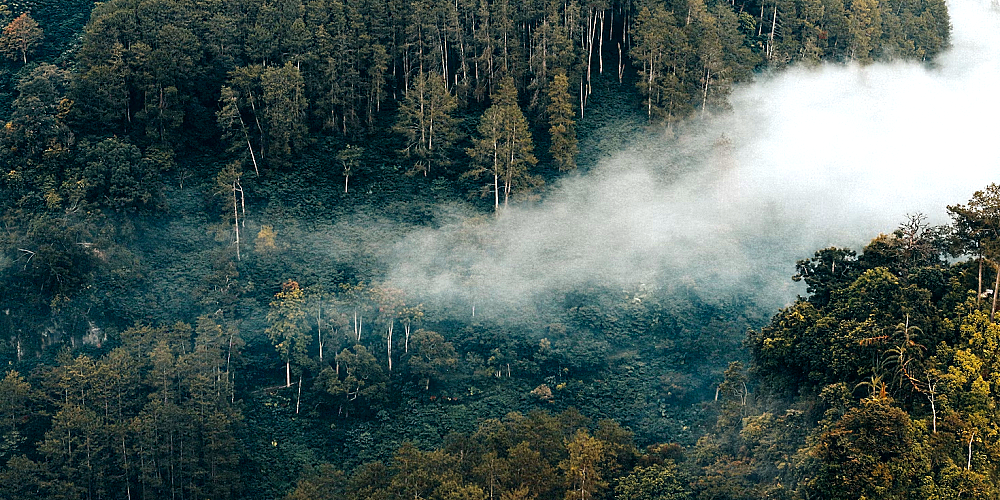
JAKARTA: President Joko “Jokowi” Widodo recently bragged to other world leaders about Indonesia’s achievements in significantly reducing deforestation, which is helping the country reach its carbon emissions reduction target to tackle the climate crisis.
But environmentalists refuted the claim, saying that Indonesia is actually behind in realising its deforestation targets and urged the government to develop a more robust forest protection policy.
During the World Climate Action Summit segment of COP28 in Dubai on Dec. 2, Jokowi boasted Indonesia’s work in curbing the deforestation rate by 75 percent, and claimed that the current rate was the lowest in the last two decades.
The President referred to data from the Environment and Forestry Ministry that showed a reduction in deforestated land from 462,000 hectares in the 2018-2019 period to 115,000 hectares in 2019-2020, according to a statement the ministry issued on Dec. 5.
Jokowi reiterated one of Indonesia’s climate targets in Dubai, saying that deforestation reduction was part of the country’s goal of achieving a forest and other land use (FOLU) net carbon sink – a condition in which the carbon absorbed is higher than the carbon emitted each year.
Under the net sink plan, Indonesia plans for the FOLU sector to contribute to the country’s emissions reduction by absorbing 140 million tonnes of carbon dioxide equivalent (CO2) of greenhouse gases.
To achieve the FOLU net sink target, Indonesia must limit deforestation by up to 4.2 million hectares between 2013 and 2030, according to the environment ministry’s estimate.
However, Greenpeace Indonesia’s analysis of government data revealed that the country had exceeded the deforestation quota to reach the net sink condition by 500,000 hectares, as Indonesia saw 4.8 million hectares of deforestation of forests and peatlands between 2013 and 2019.
“There should be no more deforestation after 2019… but in fact it is still happening to date,” said Greenpeace Indonesia researcher Sapta A. Proklamasi during a public discussion in Jakarta.
The on-going deforestation was not surprising for Sapta, as he blamed the government for not “intending to completely halt deforestation from the beginning” by not setting clear annual deforestation reduction targets.
In 2021, Environment and Forestry Minister Siti Nurbaya Bakar asserted that the 2030 net sink target did not mean that deforestation would stop, as Indonesian forests and other natural resources should be sustainably used for the country’s development.
She added that the development during Jokowi’s tenure “should not stop in the name of carbon emissions or because of deforestation.”
Sapta acknowledged the downward trend in deforestation since 2018, but the annual loss of 100,000 hectares of forest and peatland, which is 1.5 times bigger than Jakarta, is still alarming.
Agus P. Sari, CEO of environmental consultancy firm Landscape Indonesia, concurred with Sapta on the government’s deforestation reduction claim, saying authorities should carefully check the data from every region.
“Maybe in many places, deforestation is decreasing. But in some other areas, the deforestation rate is rising,” Agus said, citing a rise in deforestation in Papua in recent years.
To cut the deforestation rate even more, Sapta urged the government to make permanent a moratorium on primary forest clearing for timber and oil palm plantations, which many researchers believe to be the main driver of deforestation.
The moratorium on oil palm plantation permits, first issued through a Presidential Instruction (Inpres) in 2018, requires government agencies to stop granting new licenses for oil palm concessions and to review existing plantations. But the policy expired in September 2021.
Sapta also called for the government to focus on completely stopping deforestation, instead of just lowering the deforestation rate every year.
“The downward trend shouldn’t be regarded as an achievement as the forests are still being cut down, just at a different rate,” he continued.
Sapta also voiced concerns that the reduction in deforestation might not be sustainable if Jokowi’s successor decides to increase the deforestation quota and allow more forests to be cut down to other uses after being elected next year.
The government should also have a more comprehensive policy that details the role of civil society and the private sector in the country’s forest management, said forest policy professor Hariadi Kartodihardjo at the Bogor Agricultural University (IPB).
“The key is to not maximise profits,” Hariadi said, adding that the government should use market and non-market instruments to push for better forest management.
ADVERTISEMENT
ADVERTISEMENT








































